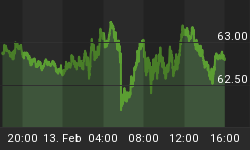The best way to lose the global tech war is by stifling immigration, and the biggest beneficiaries of the Trump administration’s crackdown on foreigners is Canada, followed by Australia, Germany and a handful of Asian nations. Last year U.S.-based tech companies warned that tightening immigration policies could result in “hundreds of employees losing their ability to work in the United States”.
At the same time, the U.S. administration is making it increasingly difficult for foreign students to obtain visas.
But the worst-case scenario is this: America is training the rest of the world’s workforce. Those students who receive their highly prized artificial intelligence or other top-notch scientific educations in the United States, are now finding themselves cut off from green cards.
How is the tech industry pre-empting this threat? By moving to Canada.
Several Silicon Valley companies have now opened offices in Canada to tap tech talent, including Google, Microsoft, Facebook and Amazon.
Canada has been working for years to grow its technology hubs. In 2017, the country launched the “Global Skills Strategy” program, which offers work permits similar to America’s H-1B visa.
Also, Germany and Asian countries all have become more popular destinations for tech savvy since the 2016 US presidential elections.
At the same time, in the last three years, Australia experienced a nearly 50% increase in new foreign students.
Back in the U.S., the number of new international students enrolling at U.S. colleges is declining precipitously.
In 2017, there was a 17% drop in international students in the U.S., with a 28% drop in Indian students and a 24% drop in Chinese students receiving visas. The results from the most recent data available, a 2017–18 survey, show that it fell again—this time by close to 7%
Data also shows that in 2018 immigration officials denied nearly one out of every four requests for new visas for skilled foreign workers. That’s the highest denial rate for new H-1B visa applications in nearly 10 years.
In February, the U.S. government extended the time it takes to process applications assigned for extended security checks to six months which previously took two months.
The Trump Administration has likewise proposed revoking an Obama-era rule that allowed the spouses of people with H-1B visas to work. This was originally scheduled to be revoked starting in June 2017, but has been delayed several times, with the U.S. Department of Homeland Security recently saying that it will be enforced this spring.
The Trump administration is also targeting another rule that has allowed international students to work while applying for visas. In large part, these changes target student visas for Chinese citizens.
It’s all happening at a time when the U.S. is enjoying stellar employment.
Job openings in 2019 outnumbered the unemployed by the “widest gap ever”, so immigrants are not, it would seem, preventing Americans from getting jobs.
Some 1.1 million foreign students contributed $36.9 billion and supported more than 450,000 jobs during the 2016-2017 school year in the U.S., according to the Association of International Educators (NAFSA).
Chinese students contributed $11 billion to the U.S. economy, while students from India contributed another $5 billion just over 2017.
U.S. tech companies are concerned at the potential loss of talent from China and India, which make up nearly half of America’s international student body.
Related: Gold Major Looks To Hike Dividends By 79%
According to a 2016 study by the National Foundation for American Policy, immigrants have been the catalyst for more than half (44 of 87) of America’s startup companies valued at $1 billion or more. Together, that means immigrants have been behind highly innovative companies that are worth $168 billion in total.
Despite data to the contrary, a recent survey showed that some 45% of Americans believe that H-1B visa holders are eating into jobs meant for local workers. While that sentiment is less prevalent in California’s Silicon Valley where only 20% view jobs in jeopardy by foreigners, it’s still the driving notion behind Trump’s anti-immigration policies.
Immigration numbers declined to 595,348 immigrants in 2019, both legal and illegal, according to NPR.
It could have significant implications for the U.S. economy, according to Brookings Institution senior fellow and expert demographer, William Frey. In part, that’s because baby boomers are aging out of the workforce at the same time as fertility rates are dropping.
In the meantime, America risks losing the global artificial intelligence race.
According to Foreign Policy magazine, China is outspending the U.S. on AI research and development, and it’s also getting to the deployment finish line faster, while at the same time enticing its AI expats to come back home.
The AI race demands a lot of STEM-educated people, and America is lacking. Without an easy path to the U.S. education system and jobs afterwards, America’s tech sector will have a hard time competing on local soil.
By Michael Scott for Safehaven.com


















I am so sure this comment wont be allowed...!!! this site is a total shrill for MSM, Deep State Plutocrats...